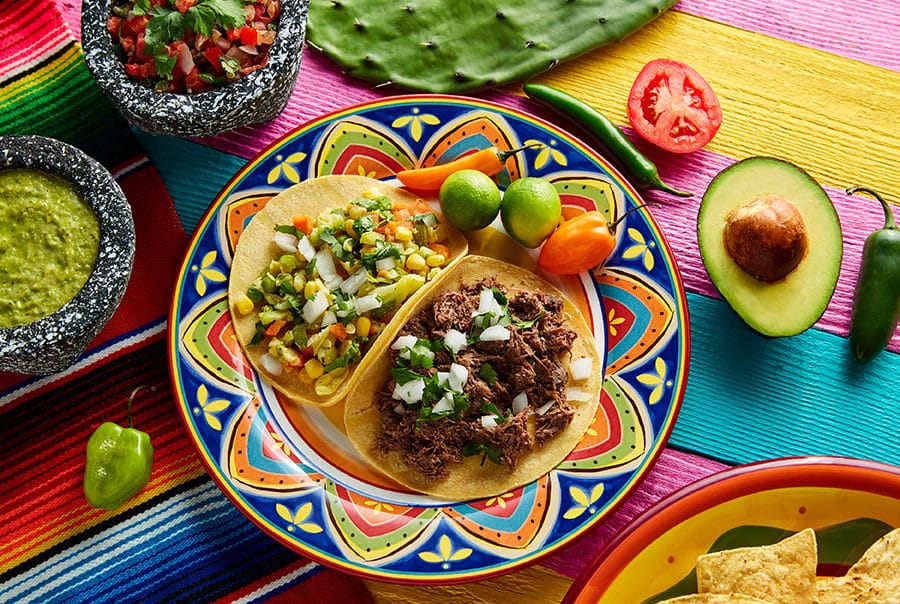
SUSTAINABLE MENU CHOICES
by Debbie Irvine
on 06/03/2024
Carbon Labelling
Carbon labelling, or carbon footprint labelling, informs consumers about the carbon emissions linked to a product by quantifying greenhouse gases like CO2 emitted during its production, transportation, and sometimes disposal. This information is then displayed on the product label, packaging, or a menu. Simple keys, alphabetised ratings, and flag systems all aid consumers in making healthier and more sustainable choices.
Why does carbon labelling matter? It raises awareness about products’ environmental impact and guides consumers towards informed, sustainable choices by allowing them to compare carbon footprints and opt for lower-impact options.

Chain Reaction
Chains have perhaps the biggest role to play in the carbon revolution – from sourcing produce to printing menus, they have the potential to restrict carbon emissions and make a significant impact on the environment.
A company called Nutritics seems to be at the forefront of supplying software and systems to restaurant groups to help them implement – from food ordering and back of house kitchens, to formulating menus for customers with accurate calculations. Their recent piece based on insights and actions from COP28 is worth a watch.
In a culinary landscape increasingly conscious of its environmental impact, Wahaca stands out as a beacon of sustainable dining. The acclaimed restaurant chain recently awarded the title of the UK’s most sustainable restaurant chain by Which? is not only delighting taste buds but also empowering its customers to make environmentally conscious menu selections. Wahaca’s commitment to the planet is evident from the moment you peruse their menu, with clear and concise ingredient pledges proudly showcased.

Another chain who intends to provide carbon labelling on menus soon is the Azzurri Group. Azzurri have also promised in a press release back in 2022 that they intend to ensure ‘65% of the dishes listed on its menus will be ‘low’ or ‘very low’ carbon options by 2030.” (Business Green, 2022)
The Hilton hotel group have also intensified its carbon labelling efforts by introducing new low-impact menus in 30 hotels across the UK in late 2023. Additionally, Pelican Procurement Services, a division of Aramark, one of our clients, is also actively engaged in reducing their environmental footprint.
May this adoption continue!
Just Eat…More Sustainably
Convenience and takeaway meals contribute significantly to packaging waste, emissions, and food wastage. However, Just Eat is leading a sustainability initiative in the takeaway industry. They’ve teamed up with My Emissions to pilot carbon labelling on dishes, with plans to expand the programme in London after a successful trial in Brighton.

Footprints In The Snow…
Providing food sustainability scores on menus and digital displays offers your customers full transparency. These scores empower customers to make more informed decisions, especially those actively seeking such information. As an eco-conscious company accredited with ISO 14001, we actively endorse this carbon labelling and will be looking to talk to more of our clients about this approach during initial menu design conversations.
It’s commendable to see major chains implementing or planning to implement carbon labelling on menus, but for me it prompts some questions.
Why don’t environmentally focused chains simply remove high-carbon footprint food items from their menus? Likely, the cost and consumer demand for year-round availability of ingredients hinder this approach.
Why hasn’t widespread adoption of carbon labelling occurred? Likely due to challenges in accurately measuring carbon footprint without fully regulated standards, and the uncertain consumer interest in sustainability.

Do consumers actively seek out sustainable restaurants? Some do, but likely not the majority. An informal poll among us, generally eco-conscious, suggests sustainability isn’t a top consideration when dining out.
Moreover, the ideal solution may involve governments mandating large chains to take responsibility for menu choices, relieving consumers of having to make this choice. Given the focus on profitability in corporations and consumer habits, enforcement may be necessary to prioritise environmental concerns.

Bio: Debbie Irvine – Digital Marketing Director
Debbie has a passion in demonstrating the value that creative and results-driven marketing can bring to businesses.



